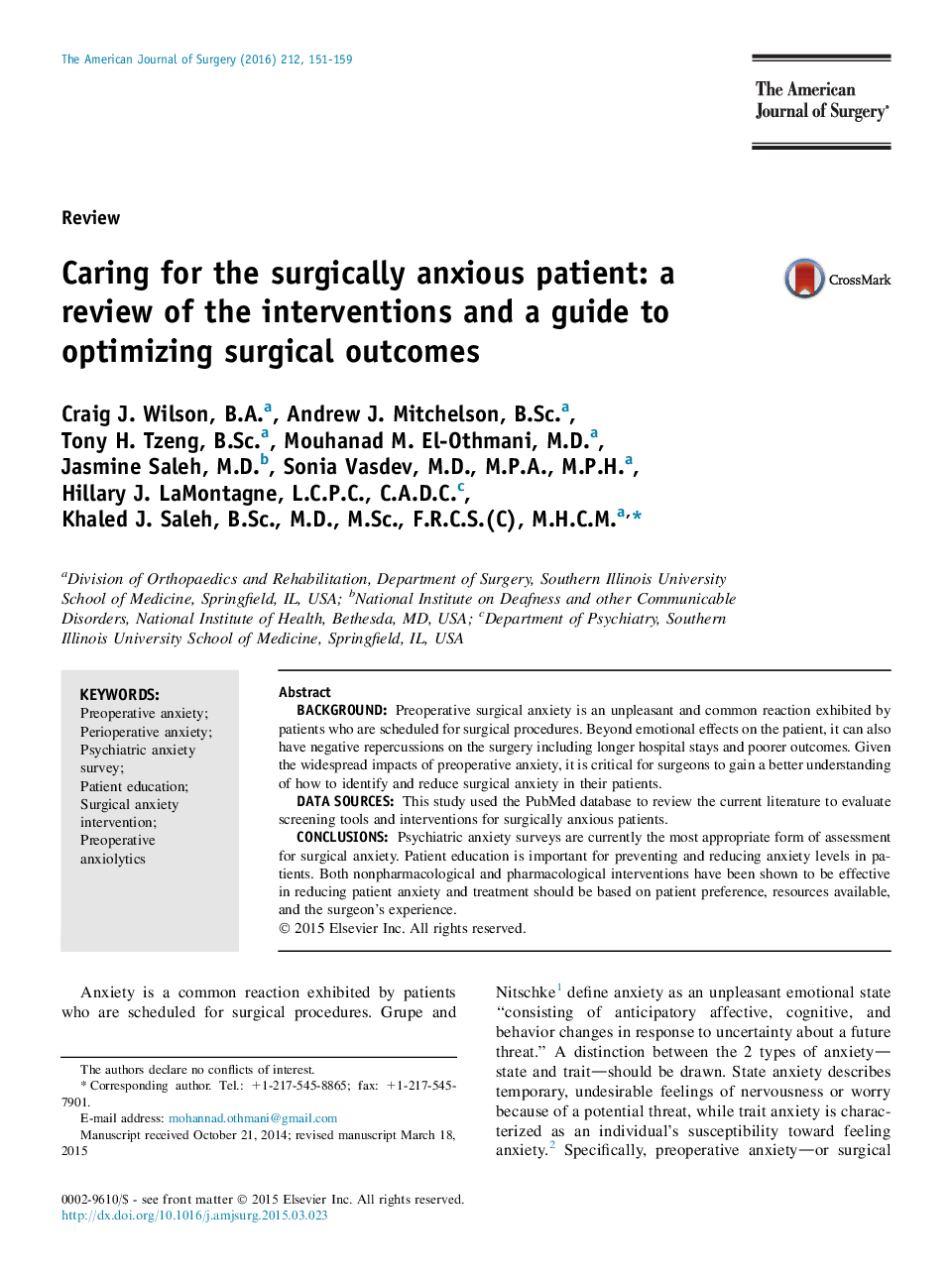| Article ID | Journal | Published Year | Pages | File Type |
|---|---|---|---|---|
| 4278131 | The American Journal of Surgery | 2016 | 9 Pages |
•Psychiatric anxiety surveys provide a valid and reliable means to screen for surgical anxiety and are currently the most appropriate form of assessment.•Patient education is important for preventing and reducing anxiety levels and should include information pertaining to patient’s condition, the procedure, outcomes, expectations, as well as patient instructions.•Various treatment options are available, with both nonpharmacological and pharmacological interventions shown to be effective in reducing patient anxiety.•Treatment should be based on patient preference, resources availability, and the surgeon’s experience.
BackgroundPreoperative surgical anxiety is an unpleasant and common reaction exhibited by patients who are scheduled for surgical procedures. Beyond emotional effects on the patient, it can also have negative repercussions on the surgery including longer hospital stays and poorer outcomes. Given the widespread impacts of preoperative anxiety, it is critical for surgeons to gain a better understanding of how to identify and reduce surgical anxiety in their patients.Data SourcesThis study used the PubMed database to review the current literature to evaluate screening tools and interventions for surgically anxious patients.ConclusionsPsychiatric anxiety surveys are currently the most appropriate form of assessment for surgical anxiety. Patient education is important for preventing and reducing anxiety levels in patients. Both nonpharmacological and pharmacological interventions have been shown to be effective in reducing patient anxiety and treatment should be based on patient preference, resources available, and the surgeon’s experience.
